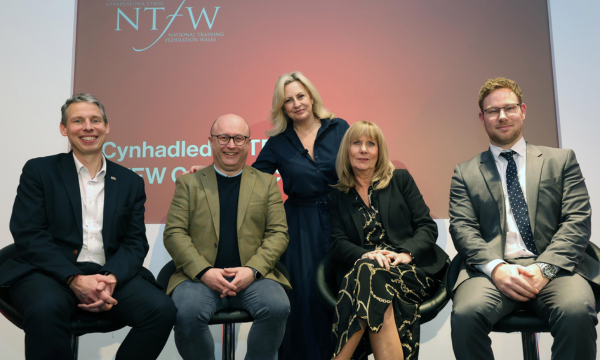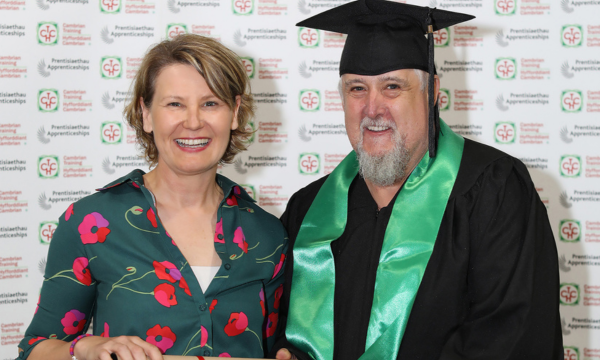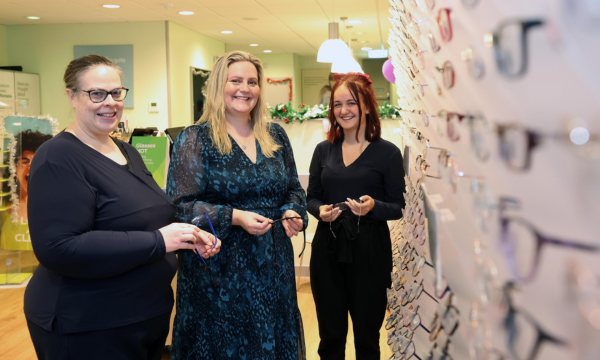
New ways of connecting primary and secondary school children with employers and apprenticeship providers to fill skills gaps have been debated at a conference.
The panel sought to answer the question “How do apprenticeships benefit Wales?” at the National Training Federation for Wales (NTFW) annual conference, which has been held for the first time since the pandemic and hosted by the International Convention Centre Wales, Newport. Headline sponsor was City & Guilds.
Panellists were Ben Cottam, head of FSB in Wales, Helena Williams, corporate development director of ALS and ACT, Leigh Hughes, Cardiff Capital Region Skills Partnership (RSP) chair and Liam Owen, Wales operational manager for Frog Bikes in Pontypool.
They discussed ways of unleashing potential through apprenticeships to empower futures and employers and drive economic prosperity.
The panellists spoke about the challenge of engaging with schools, young people and their parents to educate them about the career opportunities and learning pathways available through apprenticeships.
Ben Cottam said the challenge for the FSB and its members was how they responded to and accessed the pipeline of talent in schools. He said he had seen good examples of Welsh SMEs engaging with young learners to give them meaningful experiences of the world of work. Young people needed a point of entry into businesses which should promote the opportunities and possibilities available, he said.
Liam Owen suggested setting up a database of employers who would be prepared to share an apprentice to provide the required range of skills, knowledge and experience in small and medium sized enterprises (SMEs). He also suggested that local authorities could play a key role by offering a business rates relief to employers if they employed an apprentice. And he suggested SMEs could challenge the creative minds of young people by setting them work-related problems to solve to “open their eyes to the world of work”.
Leigh Hughes said the RSP had learnt that the best way to engage with young people is to put them first by listening to what they want and publishing material in language they can understand.
He said the new curriculum in Wales allows local partnerships to be developed between SMEs and local schools in their area.
“Industry hasn’t caught up yet in maximising the opportunities, so we must work on raising awareness,” he added.
“As an RSP we want to develop a partnership for prosperity. We want every business to prosper and every individual to make the most of their life because everyone has potential. We are trying to give people the toolbox to unleash their potential.”
Helena Williams stressed that work-based learning providers are keen to collaborate with the FSB to educate SMEs and schools about apprenticeships which can be customised to suit the needs of employers. She said the work-based learning network sometimes finds it difficult to access schools to educate learners about vocational learnin, but she acknowledged that there are clusters of good practice. ALS and ACT are now working with 22 schools and vocational education is starting to gather momentum, she said.
Following the conference, Lisa Mytton, NTFW strategic director, who chaired the panel session, said:
“The new curriculum in Wales requires us all to engage with children and teachers to help them understand that apprenticeships are available for every capability. We need to reinforce the Welsh Government message that doing an apprenticeship is a ‘genius decision’.”




















